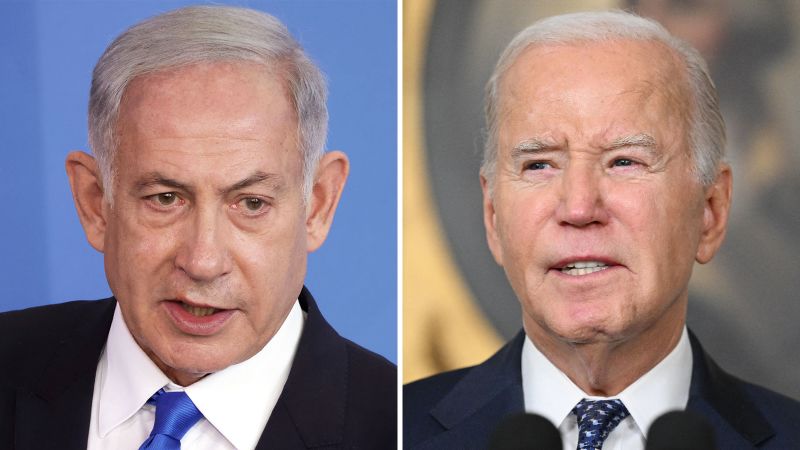
United States Proposes UN Security Council Resolution on Gaza Conflict

Amid escalating tensions in the Gaza conflict, the United States has put forth a draft resolution at the United Nations Security Council calling for a temporary ceasefire and cautioning against potential Israeli ground operations. The proposal comes in the midst of international pressure and differing views on the urgency of a ceasefire, highlighting the complexities of the situation.
The US Proposal for Temporary Ceasefire
In the midst of the ongoing Gaza conflict, the United States has introduced a draft resolution at the United Nations Security Council, urging for a temporary ceasefire in the region. The proposal specifically focuses on the need for a halt in hostilities in Gaza, emphasizing the importance of mitigating the escalating violence and ensuring the safety of civilians caught in the crossfire.
Israeli Prime Minister Benjamin Netanyahu and US President Joe Biden.
Unlike some Security Council members who advocate for an immediate ceasefire, the US draft resolution calls for a 'temporary ceasefire in Gaza as soon as practicable.' This nuanced approach reflects the complexities of the situation on the ground and the varying perspectives within the international community regarding the timing and nature of the ceasefire.
Concerns Over Israeli Ground Incursion
The US draft resolution also raises concerns over the potential consequences of an Israeli ground incursion into Rafah, a region where thousands of displaced Palestinians have sought refuge. The text of the resolution highlights the risks associated with a ground offensive, including the further harm to civilians and the possibility of mass displacements that could have broader implications for regional peace and security.
Amid mounting pressure and calls for restraint, Israel has indicated its intentions to expand its ground operations into Rafah as part of its strategy to combat Hamas. The prospect of military action in this densely populated area raises alarm over the potential humanitarian crisis that could unfold, with fears of civilian casualties and forced displacements.
Growing International Response and Diplomatic Efforts
The proposed US resolution has sparked diplomatic discussions and intensified international efforts to address the evolving situation in Gaza. With President Joe Biden advocating for a temporary ceasefire to facilitate the release of hostages held by Hamas, the US administration is increasingly vocal in its stance on the need for immediate de-escalation and humanitarian interventions.
As the Security Council prepares to vote on the US draft resolution, the global community watches closely to see how the resolution will be received and whether it garners the necessary support for adoption. The dynamics of the Council discussions and the interactions between key stakeholders, including Israel and the US, underscore the intricate diplomatic maneuvers at play in resolving the Gaza conflict.














